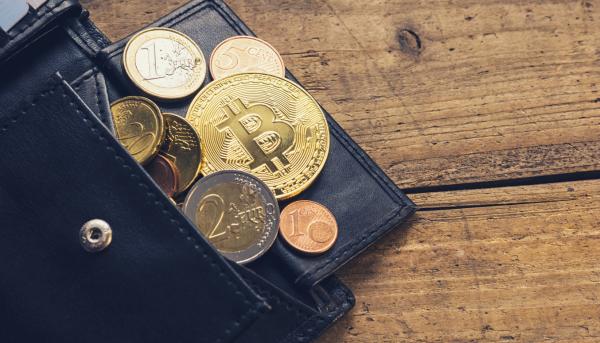
Press release: ATT welcomes new guidance on tax treatment of cryptoassets
The Association of Taxation Technicians (ATT) welcomes new HMRC guidance1 published today which sets out HMRC’s approach to taxing individuals who buy and sell cryptoassets such as Bitcoin. The guidance should help individuals to meet their tax obligations by resolving some of the uncertainties surrounding the tax treatment of such assets.
In their guidance, HMRC confirm that they expect the buying and selling of cryptoassets by individuals will normally amount to an investment activity and be subject to Capital Gains Tax. HMRC consider that it will be rare for individuals to be transacting with sufficient scale and organisation to be considered to be trading.
Jon Stride, Co-Chair of the ATT’s Technical Steering Group, said:
“We welcome this guidance setting out HMRC’s current view of the law as individuals and their advisers are struggling to determine how tax rules designed many years ago for real assets should apply to virtual ones. Cryptoassets have evolved significantly in the last few years and the previous guidance from 20142 did not reflect subsequent developments in the underlying technology or the huge increase in the number and type of cryptoassets or ‘digital tokens’ available.
“HMRC have published both a detailed policy paper together with more practical guidance for the general public, many of whom may not have appreciated that real taxes can arise on these virtual assets.3
“Individuals who hold or transact in cryptoassets should read the new guidance and consider whether or not they have any tax liabilities to report. Anyone who has carried out transactions in the 2017-18 tax year will need to do this by the self-assessment deadline of 31 January 2019."4
While HMRC’s guidance is not legally binding, where there are areas of uncertainty a statement of HMRC’s view of the position can help individuals and their tax advisers to understand the potential tax consequences.
Jon Stride continued
“Individuals who buy and sell cryptoassets should be aware that the new guidance shows that HMRC’s position on whether or not some transactions in cryptoassets could amount to gambling has changed. Previous guidance suggested that highly speculative transactions might be considered gambling, which is effectively outside the scope of tax. In their latest guidance, HMRC have confirmed that they do not consider that the buying and selling of cryptoassets will be the same as gambling.
“The guidance also helpfully confirms the tax position when individuals receive income from related activities such as ‘mining’, or ‘airdrops’ where the individual has to carry out some activity to be eligible for the allocation. Provided that the individual is not trading, such income will be taxable as miscellaneous income and, if the receipts are less than £1,000 in the tax year, may well be covered by the new trading allowance.5
“There remain some unresolved issues, including where a digital token such as cryptoasset can be considered to be located for legal and tax purposes. HMRC have indicated that this is an issue that will be addressed in future updates to the guidance.
“While we welcome the revised guidance, HMRC will need to keep updating it in order to keep pace with this rapidly changing field.”
Notes for editors
1. There are two elements to the guidance: a main policy paper providing a detailed approach to cryptoassets which will be of particular interest to tax advisers and two ‘task-based’ guidance papers aimed at the general public who may have bought and sold cryptoassets and now need to understand their obligations.
Guidance on the tax issues for businesses and companies who engage in cryptoasset transactions is expected in early 2019.
2. The previous guidance from March 2014 took the form of a Revenue & Customs Brief, with some further commentary on CGT matters in the HMRC manuals.
3. The Danish tax authorities reported this month that they are pursuing Danish citizens who have transacted in cryptoassets but not reported their profits or losses to the tax authorities.
4. The ATT has previously highlighted that an individual who has been investing or trading in the 2017-18 tax year should have registered for self-assessment by 5 October 2018. As this deadline has passed, taxpayers not already in self-assessment who consider that they have tax obligations for 2017-18 (and/or previous tax years) should take action to regularise affairs as soon as possible in order to minimise interest and penalties.
5. Miners use computers to carry out computational tasks as part of the underlying digital ledger and can receive cryptoassets as payment. Where the individual is not trading, such fees are treated as miscellaneous income. Airdrops are allocations of cryptoassets where the individual may or may not have to perform a service to receive the allocation. If the individual does not have to perform a service, and is not trading, then the receipt can be tax-free. Otherwise, the receipt will be considered miscellaneous income. Such miscellaneous income can be eligible for the new trading allowance and full relief from tax is available if the gross income from trading is less than £1,000.
6. The ATT is part of an informal working group along with other professional bodies and practitioners in the field which has commented on the revised guidance for individuals.
7. Although Bitcoin and ethereum tend to dominate the headlines when it comes to investing in cryptocurrencies, it is speculated that there are 1,500 crypto-assets in circulation with more added all the time.















